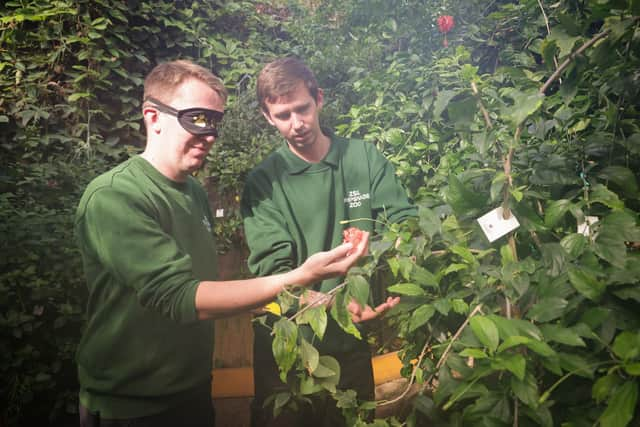Guide Dog charity offers Whipsnade Zoo staff training to help visitors with sight loss
This article contains affiliate links. We may earn a small commission on items purchased through this article, but that does not affect our editorial judgement.
and live on Freeview channel 276
Staff at Whipsnade Zoo are to receive sighted guide training as part of a new partnership with sight loss charity Guide Dogs.
The partnership aims to improve the experience for blind and visually impaired visitors, as well as promote awareness around accessibility and realities of living with a visual impairment.
Advertisement
Hide AdAdvertisement
Hide AdDuring the training, the zoo team were introduced to common eye conditions and how these may affect someone’s ability to get about. They were then given practical training on how to safely and confidently guide someone while navigating obstacles such as stairs, doors and seating. The training aims to give staff the skills necessary to support visitors with sight loss as they explore the zoo’s grounds.


Community engagement officer, Patrick Conlon said: “We want to ensure Whipsnade Zoo offers experiences to get closer to nature that are accessible to people of all needs and abilities.
“We are delighted to be working with Guide Dogs so that all our staff - from zookeepers to retail have specialised training that will make such positive changes to how visitors experience our conservation zoo.”
There are currently two million people in the UK living with sight loss, and this number is predicted to double by 2050.
Advertisement
Hide AdAdvertisement
Hide AdAssistance dogs are not currently permitted at Whipsnade Zoo, in accordance with BIAZA guidelines, because it has free-roaming animals such as mara, wallabies and Chinese water deer living on its 600 acres.
Patrick added: “The health and wellbeing of our animals, many of which are threatened in the wild, is our highest priority. Nevertheless, we work hard to ensure the zoo is accessible to all, by offering audio described tours, free entry to carers, regular early openings for visitors with additional needs, Changing Places facilities and much more.”
Tim Seamark-Coope, My Sighted Guide Community Development Officer at Guide Dogs, said: “We’ve been delighted to work with the UK’s largest zoo to deliver this training, working to improve awareness and accessibility amongst the team. We hope that this will be a great step in providing even more extraordinary experiences for visitors.”
Organisations or venues interested in making their facilities more inclusive through staff training can get in touch with Guide Dogs by contacting Lorraine Brinnen via [email protected]. Online training is also available.